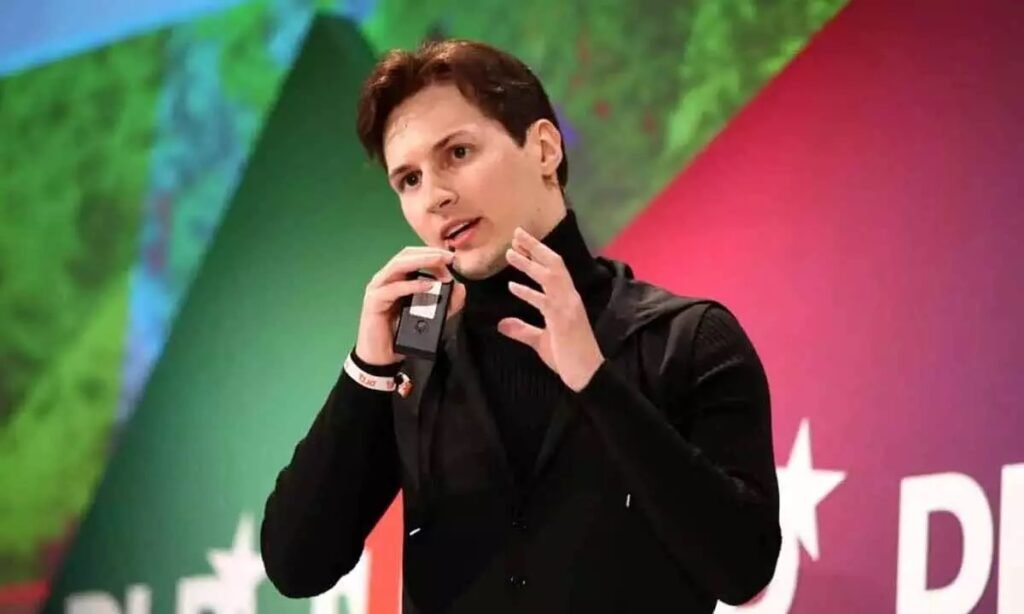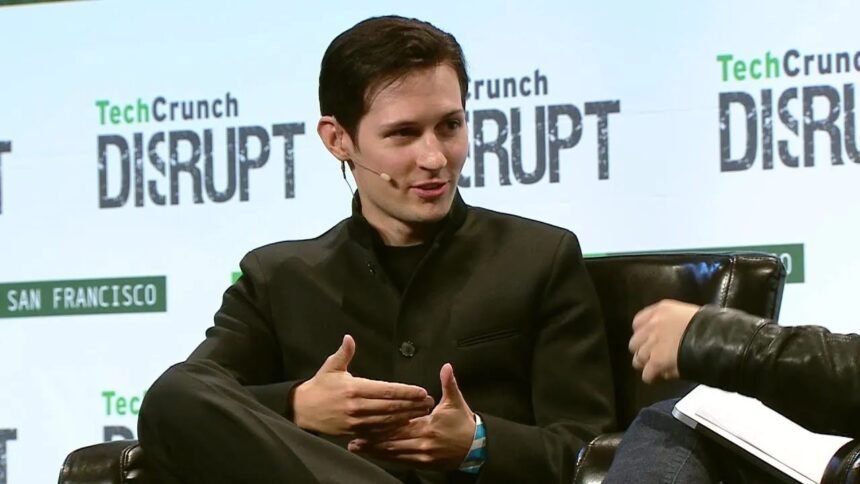Pavel Durov, the Russian-born founder of Telegram, is scheduled to appear in a French court later on Sunday This follows his arrest at a Paris airport over supposed offences connected to the messaging app.

Sources reported to AFP news agency that the Franco-Russian tech billionaire was detained by police at Le Bourget airport. French investigators had issued a warrant for Durov’s arrest in connection with allegations of fraud, drug trafficking, organized crime, terrorism promotion & cyberbullying.
Durov is accused of not acting to stop criminal activities on his platform. He was apprehended after arriving in Paris from Baku on his private jet Saturday night. “Enough of Telegram’s impunity,” said one investigator surprised by Durov’s decision to fly to Paris despite being wanted.
Russian officials have accused France of “refusing to cooperate.” The Russian embassy in Paris has requested access to Durov and stated that France has so far “avoided engagement” on this issue.
Durov left Russia in 2014 after rejecting Kremlin demands to shut down opposition groups on the VK social network, which he created at age 22. He exited VK following a conflict with its Kremlin-affiliated owners and turned his focus to Telegram, which he co-founded with his brother Nikolai in 2013.
Originally similar to other messaging apps, Telegram has since evolved into more of a social network. Users can join groups of up to 200,000 people & create broadcast channels that others can follow and comment on.
Telegram now has 950 million active monthly users and has become a major source of information—and misinformation—about Russia’s invasion of Ukraine.
Durov resides in Dubai, where Telegram is based, and holds citizenship in both France & the UAE. He recently mentioned attempts to settle in Berlin, London, Singapore & San Francisco before choosing Dubai for its business environment and “neutrality.”
In the UAE, Telegram faces little pressure to moderate content while Western governments seek to combat hate speech, disinformation and illegal content like images of child abuse.
Telegram’s end-to-end encrypted messaging allows users to create channels for sharing information with followers. Particularly popular in the former Soviet Union, it is widely used by Ukrainian President Volodymyr Zelenskiy and others in Ukraine for war-related updates. It also remains one of few platforms for unfiltered information about the conflict within Russia after the Kremlin tightened media controls following its full-scale invasion.
Although hailed for its strong encryption, Telegram has attracted extremists & conspiracy theorists. Investigative journalists at VSquare noted it had become a hub for Russian propagandists and radicals from both political spectrums as well as American QAnon supporters.
The app was also utilized by far-right groups organizing anti-immigration protests in England & Northern Ireland after last month’s stabbing incident at a Southport dance class.
The anti-racism campaign group Hope Not Hate concluded that Telegram had become the preferred app for racists and violent extremists due to minimal moderation efforts against extremist content.
Former Russian president Dmitry Medvedev indicated that Durov made an error by leaving Russia thinking he wouldn’t need to cooperate with foreign security services. “He miscalculated,” Medvedev said. “For all our common enemies now, he is Russian – therefore unpredictable and dangerous.”
Responding on X post-arrest, rightwing US commentator Tucker Carlson described Durov as “a living warning to any platform owner who refuses to censor truth at the government’s behest.”
In an earlier interview with Carlson this year, Durov emphasized that Telegram should remain a “neutral platform” rather than involve itself in geopolitics. Users, according to him, appreciate the app’s independence and privacy features.
Elon Musk shared a clip from that interview where Durov commended Musk’s takeover of X as “a great development” with the hashtag “FreePavel”. He followed up later: “Liberté! Liberté! Liberté?”
Commenting on the arrest, Robert F Kennedy Jr., who recently abandoned his presidential bid to support Donald Trump said: “The need to protect free speech has never been more urgent.”





